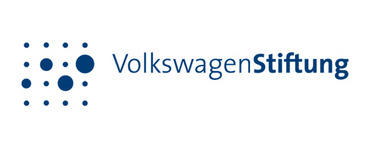OPARA: Organized Patient Participation in Health Care
Collective Advocacy, Representation and Autonomy in Socio-Ethical Perspective

„Selbsthilfeorganisationen im Gesundheitswesen: Kollektive Interessenvertretung, Selbstwahrnehmung und Autonomie aus sozio-ethischer Perspektive (KIS)“
Förderung: VolkswagenStiftung
Laufzeit: 2015-2018
Bearbeitet von:
- Prof. Dr. Silke Schicktanz (Projektleitung)
- Prof. Dr. Aviad Raz (Projektleitung)
Hintergrund
Patientenverbände (PV) sind zunehmend in der Lobbyarbeit und in der Politikberatung beteiligt und informieren durch ihre Kampagnen die öffentliche Meinung. PV haben die wichtige Aufgabe die Bedürfnisse, Wünsche und Interessen von bestimmten Patientengruppen, wobei die spezifische kulturelle und organisatorische Dynamik dieses Engagements weitestgehend unerforscht ist. Darüberhinaus existieren für Patienten mit bestimmten Krankheiten, die ihre Fähigkeit zur Selbstorganisation beeinträchtigen können, zwei unterschiedliche Typen von PV: Zum einen Organisationen FÜR Patienten (die von und für die Betreuung durch Verwandte geschaffen wurden) und Organisationen DER Patienten (in denen sich die Patienten selbst vertreten). Die unterschiedlichen Interessen, Kampagnen und Aktivitäten dieser beiden Organisationsgruppen können divergieren, da die Pflegenden und die Patienten unterschiedliche Vorstellungen z.B. über die Anwendungen eines Medikamentes oder die Art der Pflege haben können. In diesem Projekt soll analysiert werden, wie und wessen Interessen die Verbände vertreten und wie mit divergierenden Interessen umgegangen werden könnte. Der Fokus liegt dabei auf PVn für Personen mit Autismus und Demenz. Es soll untersucht werden, wie PV die Gesundheitspolitik und die Pflege beeinflussen können. Dazu werden wir Interviews mit Vertretern von Patientenverbänden durchführen, um einen Einblick in die Motive und Dynamik von Repräsentationsstrukturen zu bekommen. Das Projekt untersucht Theorien der kollektiven Autonomie, Interessenvertretung und Fürsprache für gesellschaftliche Gruppen. Darüber hinaus soll durch den Vergleich zwischen israelischen und deutschen PVn eruiert werden, inwiefern die Einstellungen der PV und ihre Organisation durch kulturelle Faktoren beeinflusst werden. Das Projekt wird daher in Kooperation mit der israelischen Ben Gurion Universität des Negev durchgeführt.
Publikationen
- Jongsma K, Rimon-Zarfaty, N, Raz A, Schicktanz S (Guest Editors). Collective representation in health care policy. Journal of Bioethical Inquiry. Special Issue. 2018.
- Schicktanz S, Rimon-Zarfaty, N, Raz A,Jongsma K,. Patient Representation and Advocacy for Alzheimer Disease in Germany and Israel: The Relevance of Stigma and Disease Conception. Journal of Bioethical Inquiry. Special Issue. 2018.
- Raz A, Jongsma KR, Rimon-Zarfaty N, Späth E, Bar-Nadav B, Vaintropov E, Schicktanz S. Representing autism: Challenges of collective representation in German and Israeli associations for and of autistic people. Social Science & Medicine. 2018 Mar 31;200:65-72.
- Jongsma K, Späth E, Schicktanz S. Epistemic injustice in dementia and autism patient organizations – an empirical analysis. AJOB Empirical Bioethics, Online first November 14th 2017, DOI: 10.1080/23294515.2017.1402833
- Gerhards H, Jongsma K, Schicktanz S. The relevance of different trust models for representation in patient organizations: conceptual considerations. BMC health services research. 2017 Dec;17(1):474.
- Raz A & Schicktanz S. Comparative Bioethics: Dilemmas of Life and Death in Israel and Germany. Springer 2016.
- Jongsma & van de Vathorst. Beyond Competence: Advance Directives in Dementia Research. Monash Bioethics 2015. Online First (October 12th 2015) DOI: 10.1007/s40592-015-0034-y
- Inthorn, Schicktanz, Rimon-Zarfaty & Raz. "What the patient wants…": Lay attitudes towards end-of-life decisions in Germany and Israel. Medicine Health Care and Philosophy 2015, 18(3):329-40.
- Schicktanz. The ethical legitimacy of patient organizations’ involvement in politics and knowledge production: epistemic justice as conceptual basis. In: “The Public Shaping of Medical Research: Patient Associations, Health Movements and Biomedicine (Routledge Studies in the Sociology of Health and Illness) 2015, edited by Peter Wehling, Willy Viehöver, Sofia Koenen.
- Raz, Jordan & Schicktanz. Exploring the positions of German and Israeli patient organizations in the bioethical context of end-of-life policies. Health Care Analysis 2014, 22(2):143-59.
- Portacolone, Berridge, Johnson & Schicktanz.Time to reinvent the science of dementia: the need for care and social integration Aging & Mental Health 2014, 18(3),269-275.
- Schicktanz & Raz. Genetics and Responsibilities: Cultural perspectives, public discourses and ethical issues. New Genetics and Society 2010, Special Issue.
- Schicktanz, Raz & Shalev. Cultural impacts on end of life ethics. A cross-comparative study between Germany and Israel Cambridge Quarterly of Healthcare Ethics 2010, 19(3),381-394.
Workshops und Konferenzen
- Schicktanz, S., Raz, A., Jongsma, K., Rimon-Zarfaty, N. Title of Panel: 'Organized Patient Participation in Health Care: Collective Advocacy and Representation'. 17th biannual Congress of the European Society for Health and Medical Sociology (ESHMS)
- Bar-Nadav, B.Title of Panel:Collective representation, advocacy and autonomy within organizations FOR and OF people with autism: The case of amendment to the guardianship law. The annual conference of the Israeli Sociology Association (conference date: 29-30.1.2018).
- Bar-Nadav, B., Raz, A. and Vaintropov, E. Title of Panel: On the spectrum of participatory research: Participatory research with people on the autistic spectrum. A panel at the annual conference of the Israeli Qualitative Research Association (conference date: 6-7.2.2018). The panel is to be moderated by a representative of ACI, the Autistic Community of Israel
- International expert workshop: “One for All, All for One? Self-representation and representation by Others in Health Policy”. 20.10.2016, Goettingen
Kontakt

Kontaktinformationen
- Telefon: +49 551 3969009
- E-Mail-Adresse: sschick(at)gwdg.de